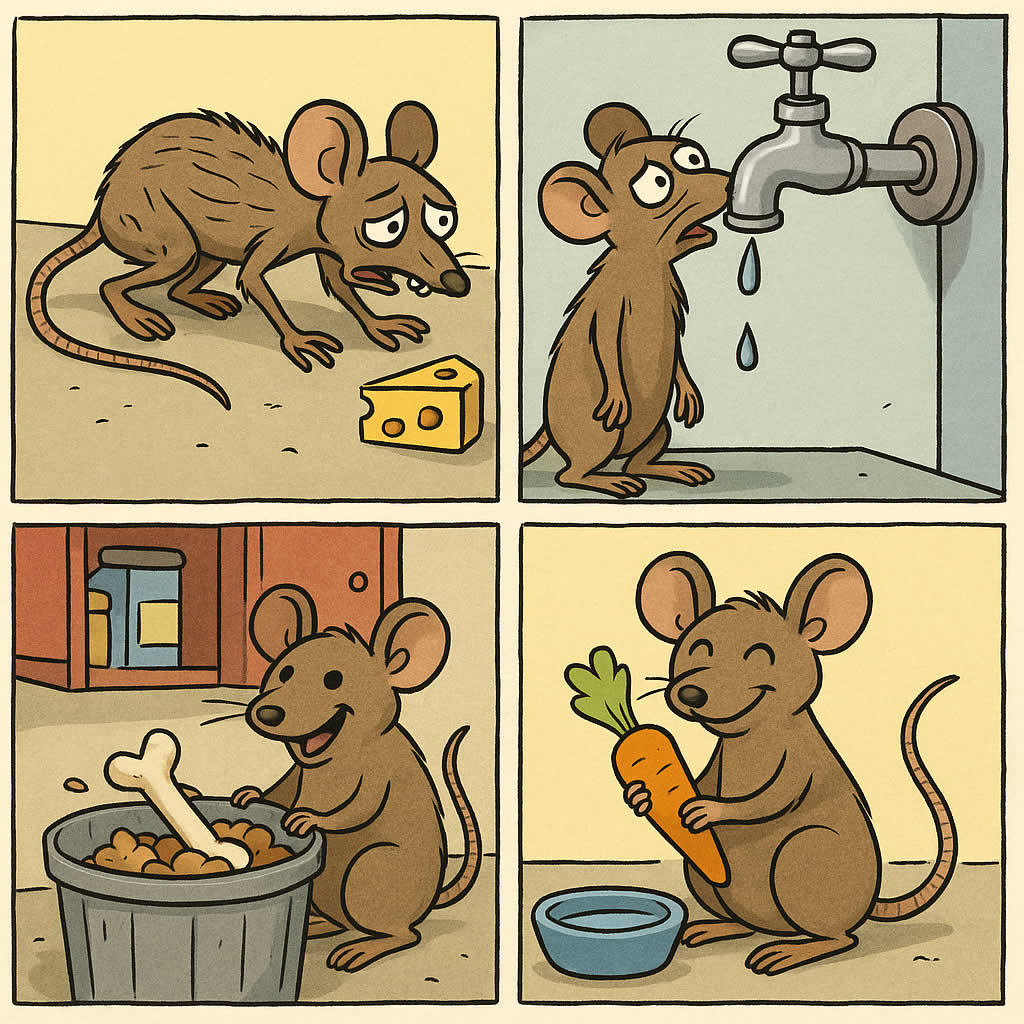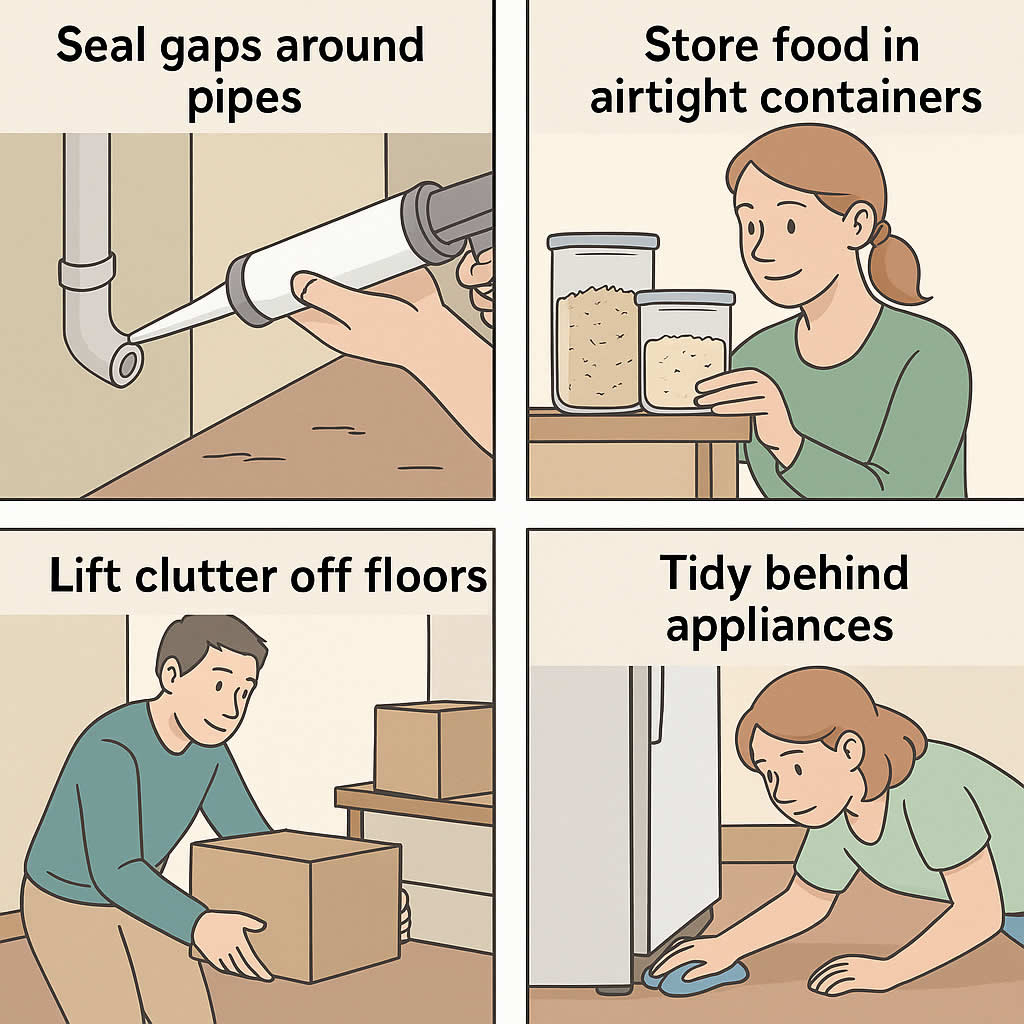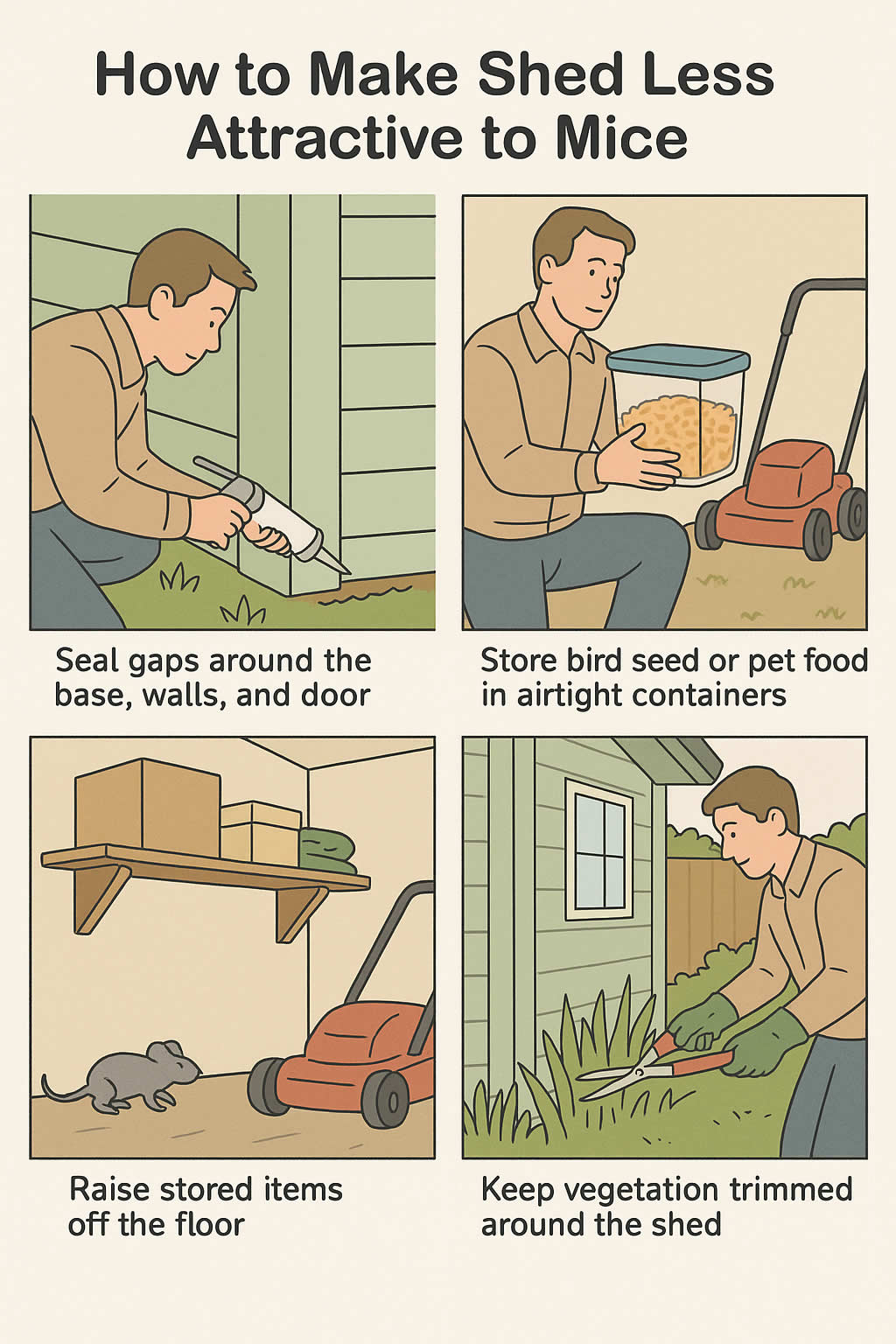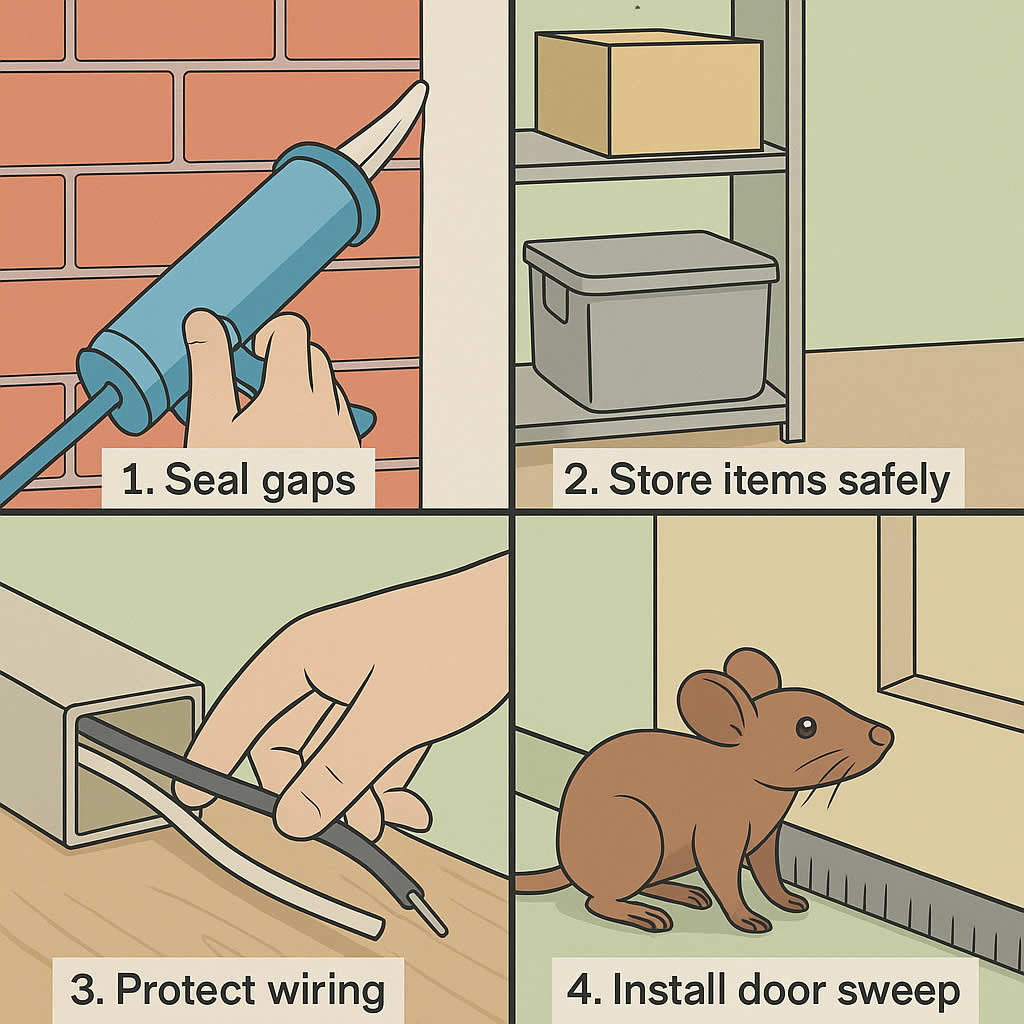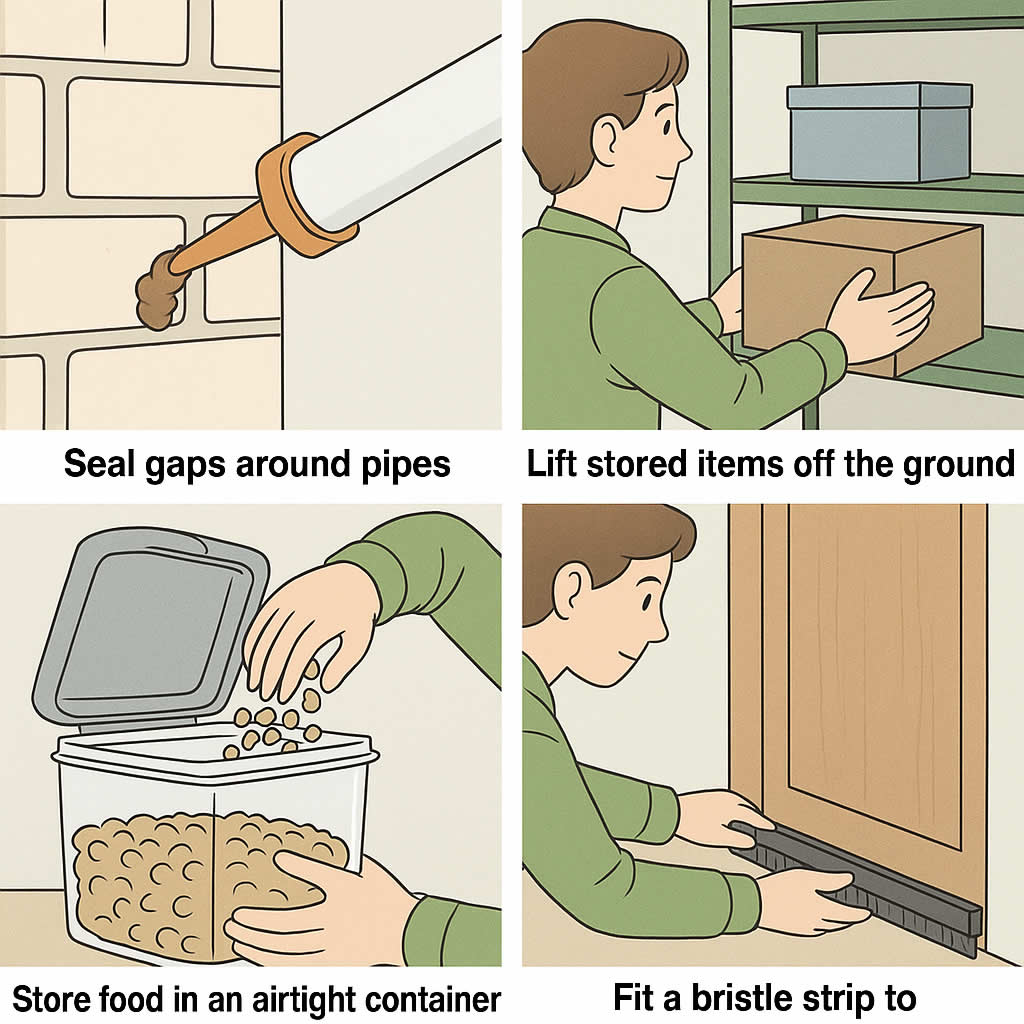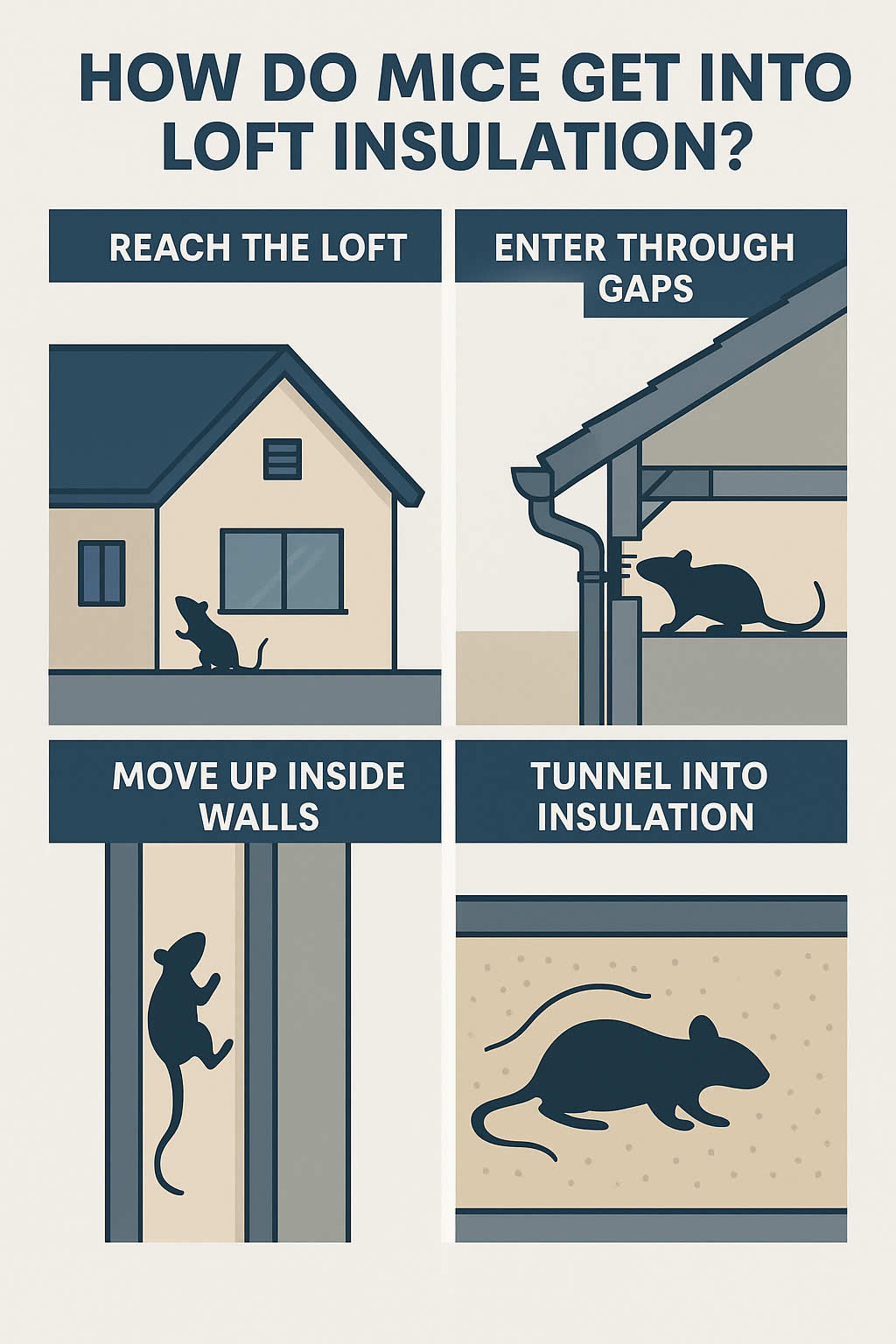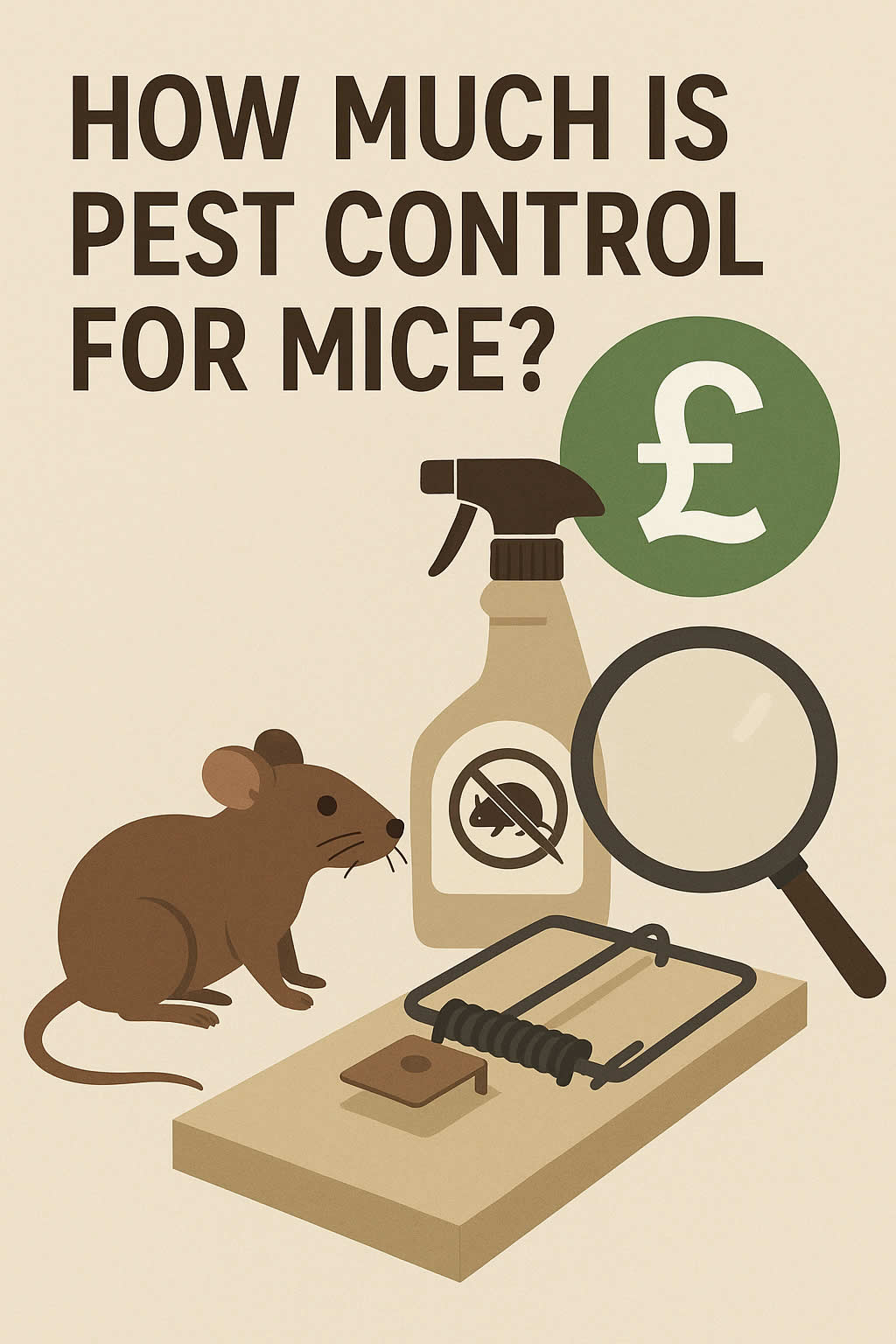Related Queries
ToggleIf you’ve ever had a mouse problem, you’ve probably wondered how long these tiny creatures can survive without food or water. Understanding their survival limits can help you tackle an infestation more effectively. Mice may seem small and insignificant, but they’re incredibly resilient. Let’s take a closer look at how they survive, how long they can last without food or water, and what this means for you if you’re trying to get rid of them.
How Long Can Mice Survive Without Food?
Mice are highly adaptable, and they can survive longer without food than you might expect. In general, a mouse can live for about two weeks without food, as long as it has access to water. But that doesn’t mean they’re comfortable. They’re natural foragers, and they prefer to eat multiple small meals throughout the day.
Their survival without food depends on several factors:
- Body Condition: A well-fed mouse with some body fat may survive longer than a thin, malnourished one.
- Temperature: Cold conditions may force mice to burn more calories for warmth, making food even more essential.
- Activity Level: Active mice burn more energy, so they need food more often.
Mice don’t just eat food you’ve left out. They can gnaw on a wide range of materials, including paper, cardboard, and even plastic, just to access food residues. That’s why they can be so hard to starve out.
Mouse Survival Comparison Table
Mice are remarkably resilient creatures, capable of surviving in challenging environments. Their survival without food or water depends on various factors, including access to moisture-rich foods and environmental conditions. Understanding these survival limits is crucial for effective pest control.
| Survival Factor | Duration | Notes |
| Without Food (with water) | Up to 2 weeks | Mice can survive longer without food if they have access to water. |
| Without Water (with food) | 2–4 days | Mice require water more frequently than food. |
| Without Food and Water | Less than 4 days | Survival drops significantly without both food and water. |
| Water from Food | Varies | Mice can extract moisture from food, aiding in hydration. |
| Environmental Moisture | Varies | Humid environments can help mice absorb moisture from the air. |
How Long Can Mice Go Without Water?
While mice can survive without food for around two weeks, water is a different story. They need water far more frequently. Most mice can only survive for two to four days without water, but they’re good at finding moisture in their environment. They don’t always need a direct water source because they can extract moisture from the food they eat. For example:
- Fresh fruits and vegetables provide moisture.
- Humid environments may allow mice to survive longer because they can absorb moisture from the air.
- Some foods, like dry grains, are low in moisture, so mice need a water source if they rely on these.
In homes, mice often find water in places you might not expect, such as:
- Leaking pipes
- Condensation on walls or windows
- Water left in sinks or dishes
Can Mice Survive Without Both Food and Water?
If a mouse has neither food nor water, its survival drops dramatically. But it’s rare for a mouse to be completely cut off from both. Even if you try to make your home as mouse-proof as possible, they’re experts at finding tiny crumbs, hidden moisture, or even accessing outdoor sources.
Why Are Mice So Good at Surviving?
Mice are incredibly resourceful, and their survival abilities come down to a few key traits:
- Small Size: They can fit through gaps as small as 6mm wide, so they can access many places.
- High Reproductive Rate: Even if some mice die from a lack of food or water, their populations can bounce back quickly because they breed so rapidly.
- Nocturnal Behaviour: They’re most active at night, avoiding humans and other predators while they forage for food and water.
- Adaptable Diet: They can eat almost anything, including paper, plastic, and even soap if they’re desperate.
Understanding these traits is essential if you want to prevent or control a mouse infestation.
Where Do Mice Typically Find Food and Water Indoors?
If mice are inside your home, they can usually find food and water in several places:
- Kitchen Cupboards: They can chew through packaging to access pasta, rice, cereal, and other dry foods.
- Pet Food Bowls: Mice love pet food because it’s nutrient-dense and often left out for long periods.
- Bins: Food waste is a major attraction for mice.
- Bathrooms: Leaking taps, toilet bowls, and shower areas provide water.
- Under Appliances: Small gaps under your fridge, cooker, or washing machine can collect crumbs and spilled liquids.
How Do Mice Behave When Starving?
When mice don’t have enough food, their behaviour changes. They become more desperate and may take greater risks to find something to eat. Here’s how their behaviour can change:
- Increased Activity: They become bolder, moving around during the day instead of sticking to their usual nocturnal habits.
- Aggression: Starving mice may become more aggressive, even turning on each other.
- Chewing and Damage: They’ll chew more aggressively on furniture, wires, and even your walls in search of food.
If you notice mice behaving like this in your home, it can be a sign that they’re struggling to find enough food.
Can Starving Mice Leave Your Home?
It’s possible, but it’s not something you should rely on. If mice can’t find enough food or water in your home, they may decide to look elsewhere. But this doesn’t always mean they’ll leave. They may just move to another part of your home, such as the attic, basement, or even your walls.
Sometimes, mice will leave for a while and then return when they sense better conditions. This is why it’s important to make your home as unattractive to them as possible.
How to Stop Mice from Accessing Food and Water
If you want to control mice, one of the best strategies is to limit their access to food and water. Here’s how you can do that:
- Store Food Properly: Use sealed containers for dry goods like cereal, pasta, and rice. Avoid leaving pet food out overnight.
- Clean Regularly: Sweep up crumbs, wipe down surfaces, and take out the rubbish regularly.
- Fix Leaks: Repair any leaking taps, pipes, or appliances.
- Limit Access Points: Seal up gaps and holes in your walls, especially around pipes and vents.
- Remove Outdoor Sources: Make sure outdoor bins are secure and that there’s no standing water near your home.
Taking these steps can make your home much less attractive to mice, forcing them to move on.
Does Poisoning Mice Affect Their Food and Water Needs?
If you use rodenticides (mouse poisons), you may notice a change in mouse behaviour. Some poisons make mice extremely thirsty, forcing them to seek out water. This can make them more visible, which helps you identify an infestation.
However, poisoning can also lead to a slow and painful death for mice, which is something to consider before choosing this method.
How Can You Tell If Mice Are Still Active Without Food?
If you’ve tried to cut off their food and water supply but still suspect a problem, here’s how you can check:
- Look for Droppings: Fresh droppings are a clear sign of active mice.
- Listen for Noises: Scratching, squeaking, and rustling sounds can indicate an active infestation.
- Check for Damage: Look for new chew marks on furniture, wires, or food packaging.
- Use Traps: Set a few traps in suspected areas to see if you catch any.
Final Thoughts
Mice are survivors. They can last up to two weeks without food but only a few days without water. But in most homes, they rarely face such extreme conditions. They’re excellent at finding tiny crumbs, moisture, and hidden food sources.
If you want to get rid of them, your best approach is to limit their access to food and water while blocking entry points. Regular cleaning, sealing gaps, and fixing leaks can all make a big difference.
Mice may be tiny, but they’re not easy to defeat. Understanding their survival needs is your first step in keeping them out.

